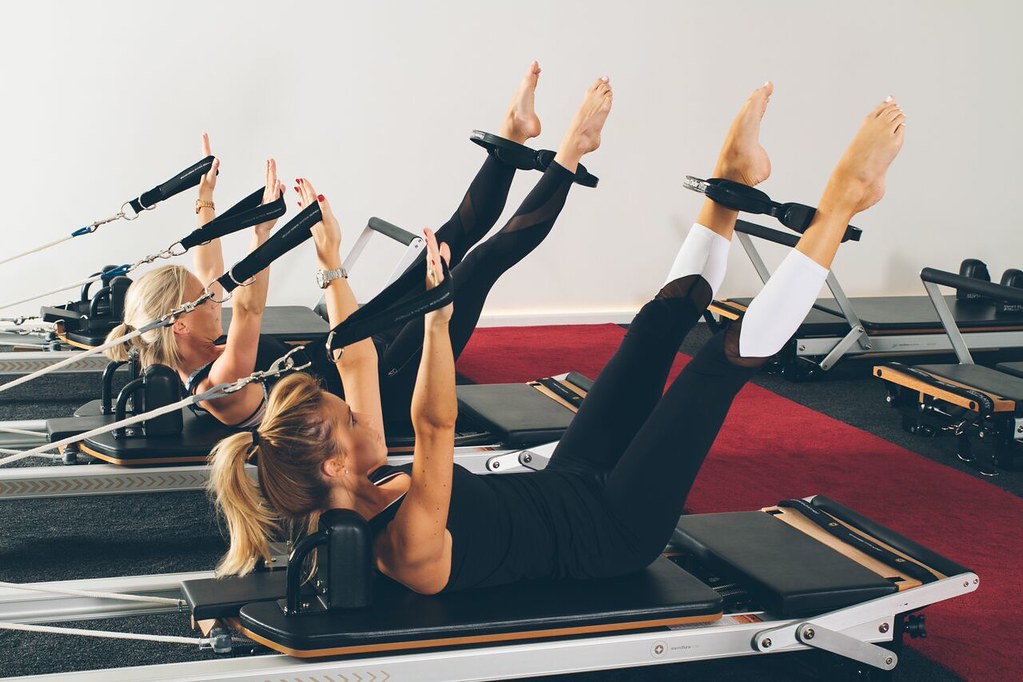The quest for equilibrium in our bodies has grown more important than ever in a society where sedentary habits and contemporary comforts frequently have a negative impact on our physical well-being. Pilates is an integrated approach to physical training that emphasises power, mobility, and, most importantly, balance as a means of obtaining this state of harmony. Developed by Rael Isacowitz, BASI Pilates focuses on core strength, flexibility, and precision. Practitioners learn to focus on their breath, body awareness, and mental concentration during exercises.
Understanding the Principles of BASI Pilates
BASI, which stands for Body Arts and Science International, is a renowned leader in Pilates education. BASI Pilates combines tradition with innovation, offering a comprehensive and contemporary approach to Pilates training. For those passionate about promoting better health and well-being, becoming a trainer with Pilates coach training offers a rewarding opportunity to guide others on their journey to improved body balance.
It is rooted in a set of core principles that guide its practice. These principles are:
1. Control
In BASI Pilates, control is paramount. Exercises are performed with a strong focus on precision and deliberate, controlled movements. This emphasis on control helps individuals develop greater awareness of their body’s alignment and movements.
2. Centering
Pilates often begins with the concept of centering, which refers to engaging the body’s powerhouse, primarily the deep abdominal muscles and the muscles surrounding the pelvis and lower back. A strong center is crucial for maintaining balance.
3. Concentration
BASI Pilates requires concentration and mindfulness. Practitioners are encouraged to fully engage their minds in each movement, promoting a mind-body connection that is essential for achieving balance and stability.
4. Precision
Precision is emphasised in every exercise. It involves performing movements with exactness, targeting specific muscle groups, and aligning the body correctly. This precision contributes to better balance.
5. Breathing
Proper breathing is a cornerstone of Pilates. It enhances the oxygenation of muscles and helps maintain focus and control during exercises. Effective breathing promotes relaxation and reduces tension, both of which are essential for balance.
6. Flow
Exercises in BASI Pilates are designed to flow smoothly from one to the next. This fluidity not only makes the practice enjoyable but also aids in the development of grace and balance.
Why Become a BASI Pilates Coach?
You have the ability to make a good difference in people’s lives as a BASI Pilates coach by assisting them in achieving improved body balance. There are numerous options to consider because it is a flexible job choice, whether you want to earn a living in a studio, provide one-on-one teaching, or even teach online. BASI Pilates values ongoing education and encourages its coaches to stay updated with the latest developments in Pilates and movement science. This commitment to learning ensures that you are always equipped with the most effective techniques to help your clients.
The Journey to Becoming a BASI Pilates Coach
The profound effect of BASI Pilates on human body balance translates into real-world benefits. Becoming a certified BASI Pilates coach is a journey that involves several stages.
1. Foundation course – The foundation of BASI Pilates begins with a comprehensive course that covers the essential principles and exercises. This initial stage lays the groundwork for understanding Pilates as a whole.
2. Mat training – Mat training is the second step, focusing on the core principles and exercises that can be done without specialised equipment. It is an excellent starting point for those new to Pilates or fitness instruction.
3. Comprehensive teacher training – The comprehensive Pilates coach training is the heart of the BASI Pilates program. It includes both mat and apparatus training, allowing you to work with specific equipment such as the Reformer, Cadillac, and Wunda Chair. This in-depth training equips you with the skills to work with clients of varying fitness levels and needs.
4. Observations and practice – You will be expected to practice your teaching techniques and watch seasoned instructors throughout your course. This practical experience will help you improve your coaching skills greatly.
5. Examinations – To become a certified BASI Pilates coach, you must pass written and practical examinations that test your knowledge of Pilates principles and your teaching proficiency.
6. Continuing education – Even after becoming certified, the learning never stops. BASI Pilates encourages its coaches to continue their education, attend workshops, and stay updated with the latest research and practices in the field.
Benefits of Having Improved Balance
The profound effect of BASI Pilates on human body balance translates into real-world benefits. People who regularly practice BASI Pilates often experience a reduced risk of falls and injuries, especially older adults. It also improves athletic performance and enhances posture. Also, people get increased confidence in everyday activities, knowing they have better control over their movements. BASI Pilates provides relief from conditions such as scoliosis or chronic lower back pain, where balance is often compromised.
Conclusion
Balance is a fundamental aspect of human movement, and BASI Pilates offers a holistic approach to improving it. As people dedicate themselves to this practise, they not only improve their body’s stability but also have access to the numerous advantages of a healthy and aligned body in everyday life. Making a difference in people’s lives by enhancing their body balance and general well-being is the goal of becoming a BASI Pilates coach. Keep in mind that balance is a way of life that encourages harmony and wellness as you set out on this rewarding adventure.

